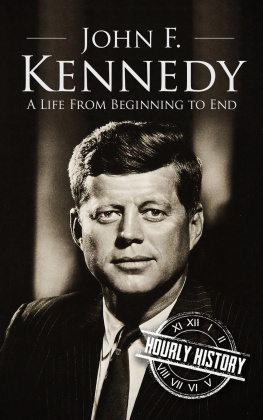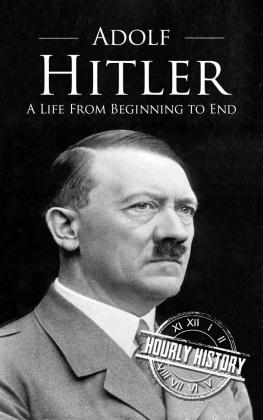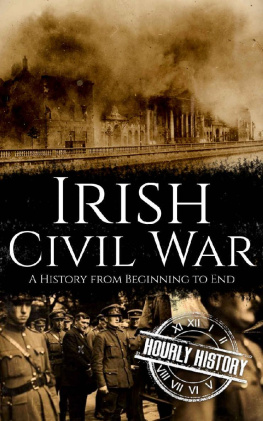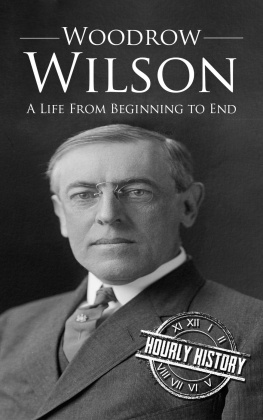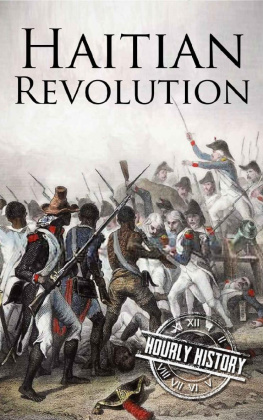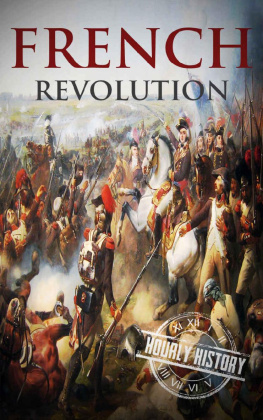Introduction
H istory doesnt treat Napoleon well. When we were children, our first exposure to him was a cartoon on Saturday mornings: he was the tiny little despot who screamed and had tantrums when things didnt go this way. Hes shown as cockeyed and crazy, an unpleasant caricature.
But who was he really?
This is a matter of lively debate even today. An exploration online will lead to forums where hes discussed as a hero, the force behind not just the success of the French military but also as the instigator of great strides in science, government, and the arts. Hes seen as one of the good guys, much loved to the point where the citizens of France even demanded his body back from England when he died in exile.
To others, he was seen as a dictator, a brilliant strategist creating wars to stroke his own ego. Those wars would result in the deaths of nearly 5 million people, leaving a certain anger and resentment that can be felt even now, 200 years later.
Many volumes have been written about the man, and we could spend all day discussing his biography and struggling to understand the nuances of his character. Instead, let us look at one single moment in his career - a snapshot if you will. At Waterloo, where he met his greatest defeat, we can see Napoleon Bonaparte in all his complexity.
More than that, we will discover a battle that changed the world.
Beginnings
As the nation was perishing, I was born. Thirty thousand Frenchmen were vomited onto our shores, drowning the throne of liberty in waves of blood. Such was the odious sight which was the first to strike me.
Napoleon Bonaparte
N apoleon Bonaparte was destined for military greatness - or so it seemed. Sent to military school as a young boy, he went on to graduate by the age of 16. From there, he quickly moved up through the ranks, until by the age of 26 he was commander of the entire French army.
That seems a fast summation, but in truth, it was a rapid ascent. Had the French Revolution not been going on, had there not been wars ready to right, and had there not been so much disarray in the world, this story might have ended differently. But the fact was that Napoleon was born in the right place, at the right time, to take over the world.
Keep in mind that Napoleon worked hard to get where he was. Being sent to a school in an unfamiliar place at the age of 9 left him with a determination to succeed. Even after he graduated, he continued to read, constantly studying military strategy. He threw everything he had into becoming an officer.
Here history does him the disservice of saying he was a small man who was desperate to make himself big. For the most part, his height was British propaganda he was average height at the time. What he saw was chaos, and whats more, he saw himself as the answer to that chaos.
Not a monarchist by any means, Napoleon almost immediately became involved in the French Revolution. He had been at home in Corsica at the start of the revolution but had joined the Jacobins there. It was natural, then, when he moved to France, to be attracted to the Jacobins there as well.
They were likewise attracted to him. Augustine Robespierre, brother to the revolutionary leader Maximilian Robespierre, discovered the young Napoleon (he was 24 at the time) when he wrote and published Le Souper de Beaucaire (Supper at Beaucaire), a pro-republican pamphlet.
Napoleon already had experience commanding troops in battle, having led a battalion of volunteers. By this time, hed already gained the rank of Captain in the regular army. Robespierre granted him the rank of artillery commander of the Republic forces at the Siege of Toulon, and then raised him to brigadier general at the age of 24.
Napoleons entire career might have ended when things went badly for Robespierre who met a gruesome end with the guillotine. But Napoleon showed he had the cleverness to keep himself out of trouble, even if he was placed under house arrest briefly.
On October 3, 1795, a group of royalists attacked the National Convention, the ruling body of the fledging government in France. Bonaparte was put in charge of the defenses. Seizing some large cannons, he cleared the streets of loyalists with grapeshot, loading the cannons with stones and small pieces of metal and broken glass. 1,400 royalists perished under the withering fire; the rest fled. For his efforts, he was made Commander of the Interior and was given control of the Army in Italy.
Here began his true rise to power. He defeated Austria. From there he forced a surrender from Venice, ending 1,100 years of independence. It seemed that nothing could stop him.
At the same time, he had learned already that to win a country, one must first win the army. Wherever he went, he spent time with his troops, showing an interest in each man. He perhaps said it best himself: In war, morale and opinion are more than half the battle. This much he knew he could win, and he did, creating a fighting force that not only would fight for him, but a force of men who loved him, and were willing to die for him.
And so it was that he fought battles. With his cleverness at strategy, and his fierce army giving their best on his behalf, he won. His successes brought him wealth and fame, something he accepted as his right, as something hed earned. What I am I owe to strength of will, to character, application, and audacity, he said.
Already hed learned that politics was just another form of strategy. While his initial campaign in Egypt went very well, his next campaigns didnt. By this point it didnt matter - the political situation in Paris was in chaos, and the time was ripe for a change. He left his troops in Egypt and returned alone to Paris. It was time to make his move.
On November 9, 1799, he and a handful of others engineered a coup dtat. While the government was replaced with a three-member consulate, with Napoleon himself as first consul, this situation didnt last long. With all the hard work of rebuilding a solid government (and making changes that are in place still today, called the Napoleonic Code) he truly did become the government. In 1802, he became consul for life a move wholeheartedly approved by the people of France. This was followed by an even more audacious move when in 1804 he declared himself Emperor of France.
When Napoleon Bonaparte rose to Emperor Napoleon, his military tactics took a sudden shift. He moved from a defense of France to an offensive takeover of much of Europe. Several other European and Prussian powers joined forces to mitigate the threat they saw coming from France.
So began a series of battles and a war that would go on for the next ten years. Initial success turned into a slew of defeats, one after another. Things came to a head when a Russian campaign in 1812 decimated the French fighting forces. Out of 600,000 men, only 10,000 remained in some kind of fit fighting form. Only 93,000 returned at all. This, Napoleon could not recover from.
On March 30, 1814, Napoleon surrendered to the allied forces that faced him. His only option was to go into exile on the island of Elba. Four hundred of his Imperial Guard went with him of their own choosing.
His story should have ended here. Except Napoleon was not one to accept defeat.
Here begins the story of Waterloo.



